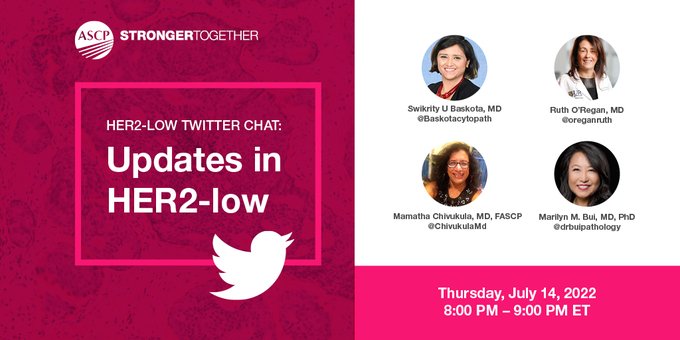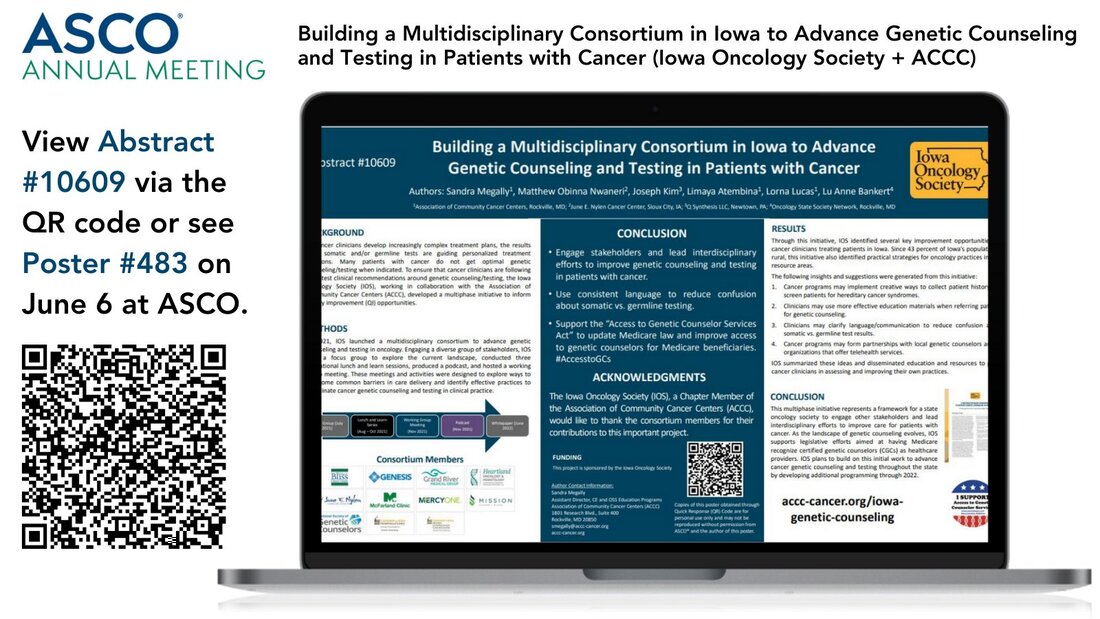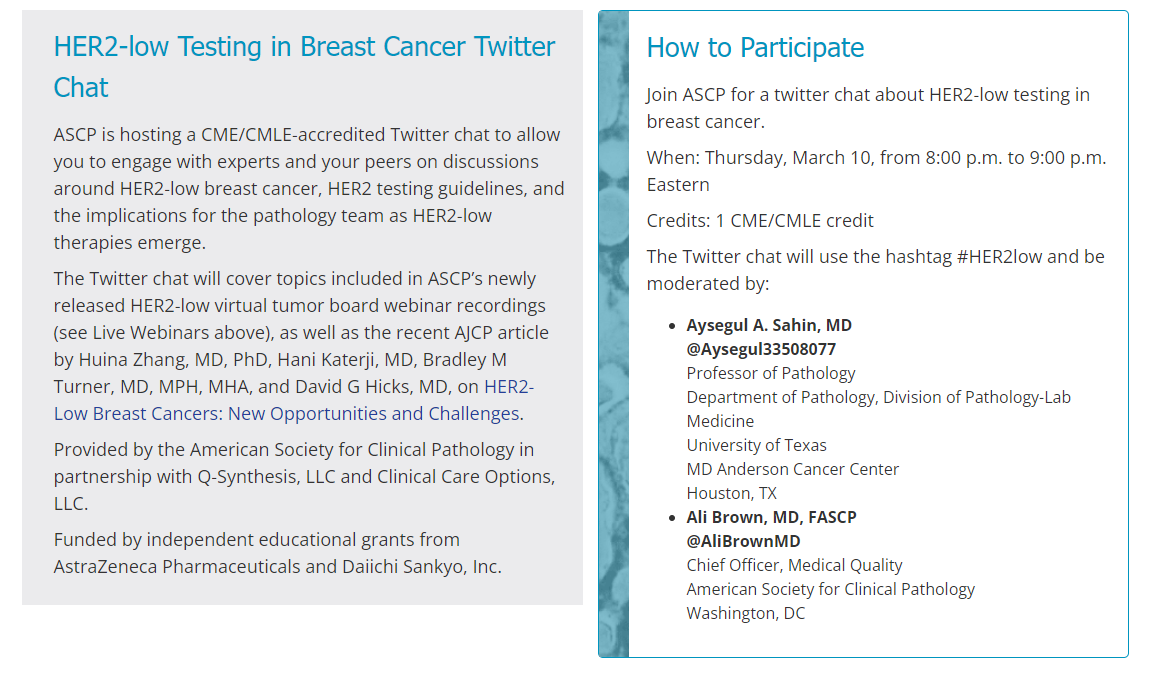|
Catch the highlights from the @ASCP_Chicago #HER2low breast cancer Twitter Chat on July 14, 2022 and get #CME credit, w/ faculty @Baskotacytopath, @ChivukulaMd, @oreganruth, @DrBuiPathology
twitter.com/i/events/1549241962565345280 Claim CME credit here: tinyurl.com/esuz2xu9
0 Comments
Claim free CME/CE credit here: https://www.akhcme.com/sbs-part3/
Free CE for psychologists, social workers, and psychiatrists. Claim CME/CE credit here: https://www.akhcme.com/sbs-part2/
CE for psychologists, social workers, and psychiatrists. Short bowel syndrome (SBS) is a chronic condition that may affect infants, children, adolescents, and adults. SBS occurs when the body is unable to absorb enough nutrients from food because the person does not have enough small intestine. Many patients with SBS and their family members experience significant psychosocial distress that is attributable to this chronic condition. Patients with SBS have significantly lower quality of life (QoL) compared to the general population and some examples of psychosocial distress include sleep disruptions, low energy, depression, anxiety, financial stress, and reduced social interactions. #ASCO22 poster abstract 10609 Building a multidisciplinary consortium in Iowa to advance genetic counseling and testing in patients with cancer
Sandra Megally, Matthew Obinna Nwaneri, Joseph Kim, Limaya Atembina, Lorna Lucas, and Lu Anne Bankert Journal of Clinical Oncology 2022 40:16_suppl, 10609-10609 https://ascopubs.org/doi/abs/10.1200/JCO.2022.40.16_suppl.10609?af=R A multiphase continuing education and quality improvement initiative to tailor treatment plans for patients with follicular lymphoma.
https://meetings.asco.org/abstracts-presentations/206461 https://ascopubs.org/doi/abs/10.1200/JCO.2022.40.16_suppl.e18651 2022 ASCO Annual Meeting J Clin Oncol 40, 2022 (suppl 16; abstr e18651) DOI: 10.1200/JCO.2022.40.16_suppl.e18651 Authors Joseph Kim, Timothy S. Fenske, Linda Gracie-King, Marc David Viens, Victor Ocana, Abhinav Binod Chandra, David Penberthy, Tori McCurdy Organizations Q Synthesis LLC, Newtown, PA, Medical College of Wisconsin, Milwaukee, WI, Axis Medical Education, Fort Lauderdale, FL, AXIS Medical Education, Inc., Fort Lauderdale, FL, Yuma Regional Medical Center, Yuma, AZ, Bon Secours Mercy Health, Petersburg, VA, Baptist Cancer Center, Oakland, TN Psychosocial Challenges Experienced by Patients with SBS (Short Bowel Syndrome) https://www.akhcme.com/sbs-part1/ This continuing education activity is for psychiatrists, psychologists, and social workers who may be involved in the care of patients with SBS. ASCP, working in collaboration with Q Synthesis LLC, invites pathologists to participate in a unique cohort-based leadership development CME program called Pathology Trailblazers: HER2-low Breast Cancer Collaborative Learning Exchange.
This program will begin in May 2022 and run for approximately 3 months. Pathology Trailblazers: HER2-low Breast Cancer Collaborative Learning Exchange is designed to:
Learn more about this unique program here: https://www.ascp.org/content/learning/breast-cancer#trailblazers Join ASCP on Thursday March 10, 2022 at 8 pm Eastern for this CME Twitter Chat on the topic of HER2-low breast cancer. Instructions for this activity can be found here: https://www.ascp.org/content/learning/breast-cancer#
Open Twitter at 8 pm Eastern Follow @ASCP on Twitter: https://twitter.com/ASCP_Chicago We encourage you to read this article for additional information about this topic: HER2-Low Breast Cancers: New Opportunities and Challenges. This virtual tumor board from ASCP will help you understand the science and emerging evidence around HER2-low breast cancer, as well as changes to practice that will be necessary in preparation for anticipated approvals of HER2-low breast cancer therapies. Claim CME/CMLE credit at: https://store.ascp.org/productlisting/productdetail?productId=143142647
Funded by independent educational grants from AstraZeneca Pharmaceuticals and Daiichi Sankyo, Inc. This virtual tumor board from ASCP will help you understand the latest evidence regarding HER2-low breast cancer, HER2 testing guidelines, the implications for the pathology team as HER2-low therapies emerge, and ways to streamline communications with oncologists and other members of the cancer care team. Claim CME/CMLE credit at https://store.ascp.org/productlisting/productdetail?productId=143510393
Funded by independent educational grants from AstraZeneca Pharmaceuticals and Daiichi Sankyo, Inc. |
Author@DrJosephKim Sign up to receive updates:
|



